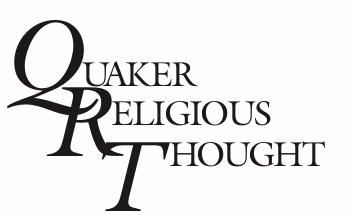
Abstract
How did twentieth-century Friends understand the nature of the so-called Peace Testimony? That is, of course, a very large question. In this brief essay we hope to shed what is admittedly a very thin sliver of light on it by exploring the life and thought of Henry Cadbury (1884-1973). The essay is divided into four sections. The first presents a brief overview of Cadbury’s life. The second looks at Cadbury’s general approach to peace. The third explores how it was that Cadbury’s strenuous opposition to the First World War led to his being forced to resign from the faculty of a Quaker school in suburban Philadelphia: Haverford College. The fourth draws some comparisons between the form that the Quaker Peace Testimony took in the years 1656-1723 and the form that it took in the twentiethcentury.
Recommended Citation
Krippner, James and Watt, David Harrington
(2019)
"Henry Cadbury, the Peace Testimony, and the First World War,"
Quaker Religious Thought: Vol. 133, Article 2.
Available at:
https://digitalcommons.georgefox.edu/qrt/vol133/iss1/2
